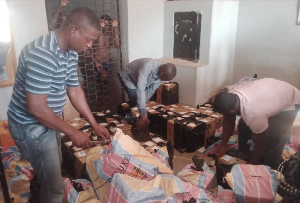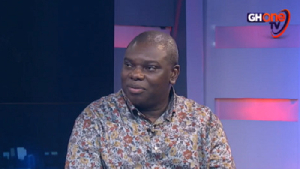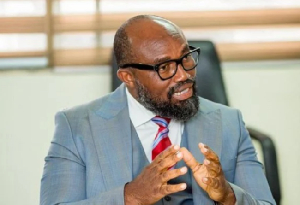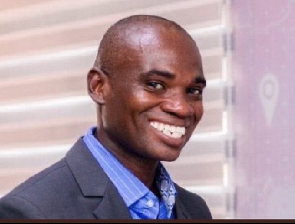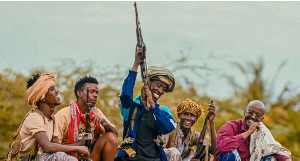Many — except some few editors, publishers, reporters and writers — understand the statement of Bill Gates: ‘‘If you are born poor it’s not your mistake, but if you die poor it is your mistake.’’ If you come from a stereotypical ancestral background or suffer from a stereotypical past it is not your fault, but to die as a victim of that past would be regrettable.
Undoubtedly, Ghanaian media has contributed immensely to the democracy of this country. Nonetheless, the inability of some few newsmen to work in accordance with the standards of the noble profession is utterly disappointing and dangerous to the peace and security, and to the development of this country.
The refusal of the few recalcitrant media men to learn from Rwanda — a country that was plunged into war by newsmen — and begin to verify, check and censor stories before making it public can never be more dangerous. It is pitiful that the explosion in information in this age has not been accompanied by same increase in knowledge, a contributory factor to Ghana’s current state of affairs.
But the good news is, the victims of the continuous negative and alarming media reportage, have accepted the reality of their challenges — challenges that the entire Ghanaian society share, although to different degrees — and are on the arduous journey to overcome their difficulties.
However, these victims have always asked this question in unison:
will mediocre reportage make one monkey better than the other? Of course history is necessary, but to the section of the media who are itching to bring regrettable history to life by always putting up alarming and divisive reportage that seek to slice and dice the people to engage in another conflict, do yourself some good by learning that these people you are so interested in seeing them slay one another can now be found in every hood, every skyscraper and every balcony around the country, and, so a conflict between them will affect the entire nation.
In addition to the fact that conflicts dissipate government resources that could have championed developmental projects, conflicts also make countries and continents repulsive to European investors and Chinese investors — whom we have endlessly persuaded to come and invest here in our dear nation.
When people are caught up in armed conflict, multiples of media practitioners often bear the full brunt of the conflict.
In case you are wondering how: they (media men) lose their lives to stray bullets coming from sophisticated weapons just like some innocent people sustained injuries from rubber bullets which lost its way during the fierce demonstration at Madina.
Similar to the disturbances witnessed at Agogo between the people of Agogo and the herdsmen, which became a national issue and never won a space on the newspapers nor online news portals for defamatory headlines; a pig gets into my farm and destroys my crops.
I kill the pig, and the owner of the pig gets furious and the situation escalades to a disturbing one. By the stroke of a pen, it’s being reported as a clash between two ethnic groups over a pig.
Disgusting journalism! And this is so because the media succeeded, in the early 90’s, in ramming it down the throat of the whole world that guinea fowl was responsible for the unfortunate conflict that took place in the North, and made it appear as if they fought for the meat of the guinea fowl.
But people should be reminded that in this age, a whole nation could pay dearly in diverse ways for misinformation and the gutter journalism when it comes to sensitive issues that border on the security of our nation.
Sages and life experiences reveal to us that conflicts are inevitable in human society. Effective conflict management should, therefore, be our holy grail.
And no paragraph in any of the mounds of books on conflict management resting in our libraries prescribes ridicule nor negative media reportage as a means of conflict resolution.
The victims of continuous negative reportage dread to think of the kind of barbaric headlines that would have inundated the news if the bloody demonstration at Madina had happened at their side of the country.
But the simple question remains, in the words of the racist, which monkey is spotless?
Certainly, it is beyond any person’s authority to silence the media or dictates words or headlines to them. But it is every citizen’s civic responsibility to remind the media of their responsibilities in the face of common danger that looms large on the horizon.
A danger whose gravity or total consequences they cannot run away from. It remains their responsibility to consider the degree of threat contained in their reportage and re-examine their ethics, code of conduct and the standards of the noble profession as well as their own personal standards.
Journalism is to inform citizens and not to misinform them. It is to serve a nation and not to fulfill one’s personal interest at the expense of a whole nation.
Just at a sight of alarming reportage, some good citizens do experience stomach turns, and am wondering how newsmen do not throw up or vomit on their cooked and devastating reportage but still manage to throw it out into the public domain.
But, it is worthy to observe that the victims of the continuous negative reportage now have a lot of polymaths in their midst who can write and write better; who can tell stories with eloquence.
These polymaths can also decide to write to exaggerate, and tell stories which will overemphasize on the broad day light raping of helpless women, subtle killing of people through food poisoning, attacking and killing of men and women in their farms, etc. which are endemic in some parts of this nation.
But the question remains, will that make one monkey better than the other? It pays to become citizens who will hold hands together in our rise and falls, but it pays not to remain as spectators who will endlessly run one another down.
Hasta la victoria siempre!
Opinions of Saturday, 10 November 2018
Columnist: Abdulrahim Newton



